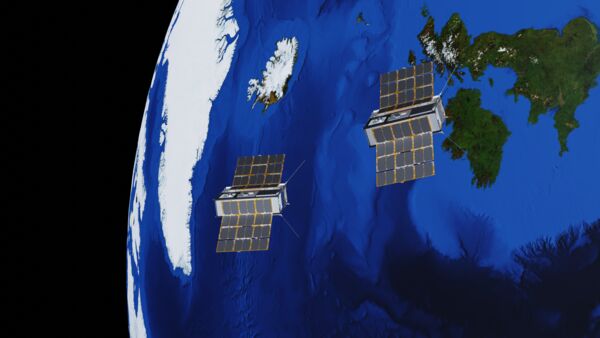
The Prometheus 2 CubeSats were scheduled to be launched from Cornwall onboard Virgin Orbit's LauncherOne rocket before an anomaly in the launcher resulted in the two satellites being destroyed. (Crown Copyright)
The UK is investigating several options to replace the Prometheus 2 satellites destroyed during the failed Virgin Orbit launch in January 2023.
Speaking with Janes on the Prometheus 2 successor, Head of Space Capability at UK Space Command Commodore Dave Moody said one possible option would be to repeat the project as before. The other option would involve developing satellites with more advanced instruments.
Developing a successor would depend on whether the project receives additional funding as well as all the necessary approvals and support from international partners. If this is achieved, he expects the new satellites will be more advanced versions of their predecessors, considering technology has progressed.
The Prometheus 2 CubeSats were intended as a test platform to monitor radio signals and conduct sophisticated imaging. Virgin Orbit's adapted Boeing 747 jet named Cosmic Girl was due to horizontally launch the CubeSats into space in January using its LauncherOne rocket while at an altitude of 35,000 ft. However, the rocket suffered an anomaly and all satellites were lost.
Prometheus 2 comprised two satellites, the first of which – CubeSat1 – encompassed a hyperspectral imager designed to capture pictures over different wavelengths, a laser detector, and a Global Positioning System (GPS) receiver intended to confirm the exact time and location of the satellite over Earth. CubeSat2 comprised two optical imaging cameras, a laser rangefinder, and a GPS receiver. One camera was fitted with a wide-angle lens for a 180º view of the Earth's surface, while the second observed CubeSat1 to support space situational awareness.
Looking to read the full article?
Gain unlimited access to Janes news and more...







